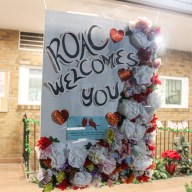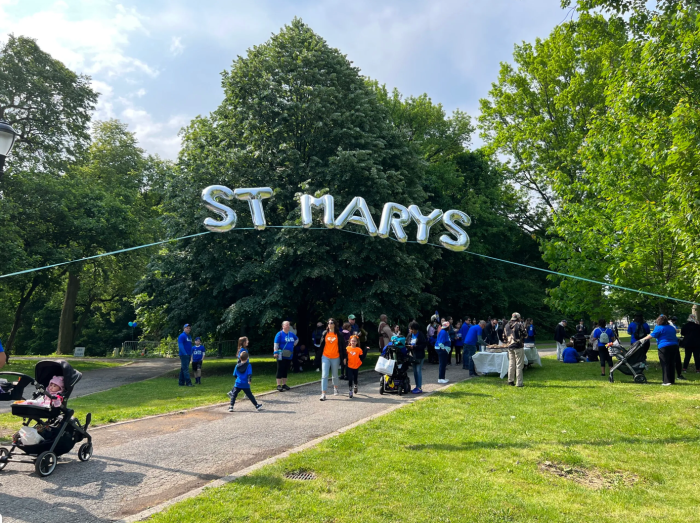By Daniel Arimborgo
In October Grubler replaced Joyce Cook in the director's position at the Society's headquarters in the Kingsland Homestead House, at 143-35 37th Ave. in Flushing. Cook had left for another job.
“The people are very nice here,” Grubler said, “and I'm very pleased that I have been made to feel comfortable from the very start.”
Grubler, 50, who was born in Flushing and later moved to Brooklyn, now lives in Staten Island.
He began working as an assistant to the director at Historic Richmond Town, run by the Staten Island Historical Society, straight out of the University of Vermont where he received his master's degree in Historic Preservation.
“I guess I'm very visually oriented in buildings and such,” Grubler said, “and that interest led to a career.
“I think even as a kid I developed an interest in visiting historic sites. My folks would go on auto trips to Pennsylvania and Virginia. At some point after I did my undergraduate work, I realized there were fields in preservation” after he taught a few years of high school speech and English in Manhattan and Brooklyn.
Events like last fall's Indian Diwali Festival attracted Grubler to the Historical Society.
“It was a way to introduce a new community to the Historical Society and to explore a rich historical community in Queens,” he said.
The society has other programs designed “to reach out to various communities,” Grubler said, like the upcoming African American History Month Program on Sunday, Feb. 11 at 2 p.m.
The program at the Flushing Library at 41-17 Main St. will include a panel discussion, “Where we were, and where we are in Africa and beyond,” moderated by Councilwoman Helen Marshall (D-Astoria).
Following the discussion, a video produced by QPTV will take a look back at the secret freedom trail, subject of a current exhibit at QHS's Bowne House Headquarters: “Angels of Deliverance,” chronicling the Underground Railroad.
Because Flushing was the center of the Quaker community which supported the free black population of the city, “this whole area became a contributor to the freedom movement,” Grubler said.
The exhibit also has quilts used in the Underground Railroad with patterns that served as cryptic symbols informing escaping slaves of dangers and other important information about the areas along the trail north to freedom.
Another room features several documents related to the slave trade, like a bill of ownership and another that was proof an ex-slave had been given his freedom.
“I like being an executive director, because I have an overall picture of all the activities of the organization,” Grubler said, “so there's never a dull moment.”
Another exhibit, scheduled to open in June, which will feature rooms modeled in the Chinese tradition of Feng Shui, which according to the ancient belief creates proper energy flow.
“It is going to be a fun exhibition with models, decorative objects, and photographs,” he said, “complete with models of rooms showing principals of the art.” The exhibit runs through February 2002.
“Another thing I'm planning is a permanent exhibition about Kingsland Homestead and the people who lived here,” Grubler said. “I like the challenge of having a program and seeking funding for it, and I think I'm pretty good at production and marketing. I also like working with other groups and organizations, because there's such a rarity of things going on.”






























